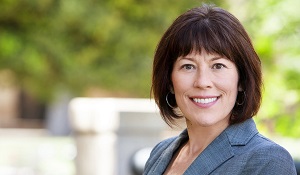After the killings of George Floyd and Breonna Taylor, Dr. Sarah A. Soule, the Morgridge Professor of Organizational Behavior at Stanford Graduate School of Business (GSB), noticed that many Black faculty and staff members were being asked to write and teach about systemic racism and racial injustice.
Feeling as though they were carrying a “big lift,” she wanted to be part of the solution. To do so, Soule, alongside her two colleagues Dr. Maggie Neale and Hannah Yanow, created the Anti-Racism and Allyship Journey program.
Through readings, short videos, reflections and additional materials, the self-paced seven-day program is designed to discuss race, unconscious or implicit bias, anti-racism, intersectionality and allyship.
 Dr. Sarah A. Soule
Dr. Sarah A. Soule
“We want to sort of fulfill our mission of putting content and good ideas out there in the world,” said Soule, who is also senior associate dean for academic affairs at GSB. “We were also really taken aback by how overwhelmed people felt. The cognitive load was so high with all of these amazing resources that people could engage with. But people did not know where to start, really.”
The materials are available to the public at no cost and take up to 45 minutes to complete. At the end of program, individuals are asked to create their own action plan to address systemic racism.
While the program can be completed individually, there are also options for someone to facilitate the conversation. The facilitators guide offers a list of questions per section and suggests the chosen leader set ground rules and an agenda for the meetings.
“What we hope people will do is decide that they want to go through this with their friends, family, work teams or some other group of individuals,” said Soule. “Maybe they could do one day a week where you would engage with the materials alone and then you have a meet up and discuss.”
Her goal is for students and alumni to also participate in this program.
To further engage the community, GSB established the “Leadership for Society” webinar series.
“[We are] thinking about how we can address big social issues of the moment and provide the opportunity for people to learn about these issues from people who are dealing with them,” said Dr. Brian S. Lowery, the Walter Kenneth Kilpatrick Professor of Organizational Behavior and senior associate dean for academic affairs at GSB.
However, beginning in September, the webinar’s topic transitioned to discussing race and power.
Now, this nine-week virtual program will run through November and aims to bring awareness to the racial disparities within the United States. The series will look at the role of race in society, systemic racism, the wealth gap and housing disparities.
 Dr. Brian S. Lowery
Dr. Brian S. Lowery
Some of the speakers include New York University professor Dr. Charlton Mcllwain; University of California at Irvine professor Mehrsa Baradaran; Founder in Residence of PolicyLink Angela Glover Blackwell; and President of Color of Change Rashad Robinson.
“I hope the webinar provides a model for how to talk about difficult issues,” said Lowery. “These are things that people see and know are out there. I think there has been a fear about talking about these issues openly. So, providing a model to talk about issues and challenging people’s ideas in a way that is respectful.”
Around 4,000 participants have signed up for the webinar series and between 600 to 800 people attend on a weekly basis, according to Lowery.
“We are an institution of higher education and given our reputation and place in that educational ecosystem, I think it’s part of our responsibility to engage the broader society and public around what we choose,” he said.
These programs are part of school’s deeper commitment to promoting diversity, equity and inclusion on campus. Over the summer, GSB created the Action Plan for Racial Equity.
Under the plan, the school launched initiatives to increase accountability and representation as well as create an environment of belonging.
For example, the Rising Scholars Conference was established to provide underrepresented minority teaching students and postdoctoral researchers an opportunity to present their work to GSB faculty.
Additionally, the annual Diversity, Equity and Inclusion Report will be released in November with “added metrics to measure representation and culture of inclusion,” the school reported.
Lowery said GSB is both “responding to and meeting in the moment.”
“I feel proud that it’s not just putting out a statement right now,” he said. “It really is thinking about what the future of the institution will look like. I think that we are really making the effort to engage with other constituents, like our students and alumni, to create that collectiveness and look at what that future might be.”
Sarah Wood can be reached at [email protected].



















